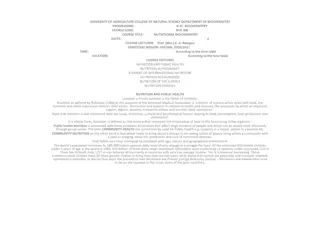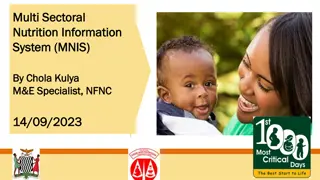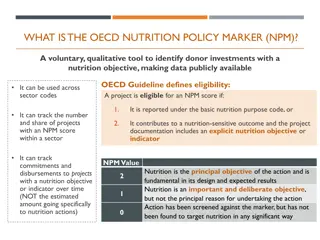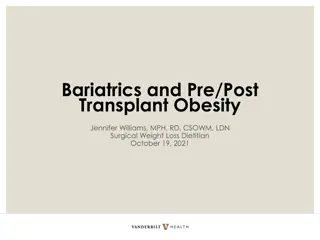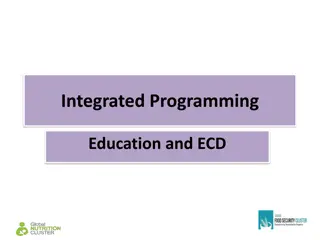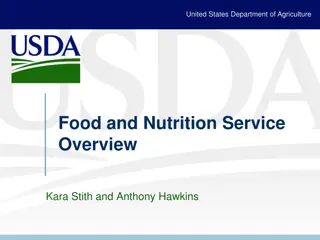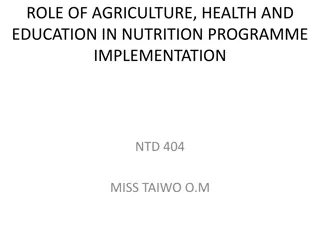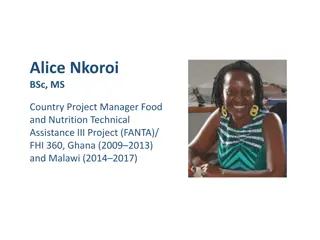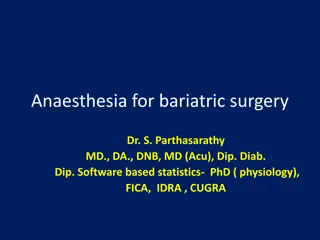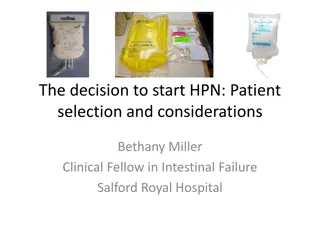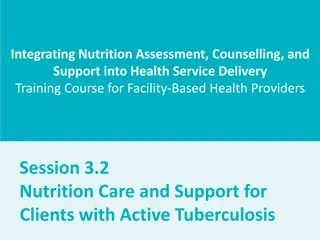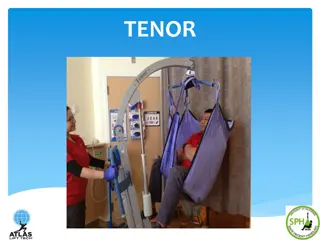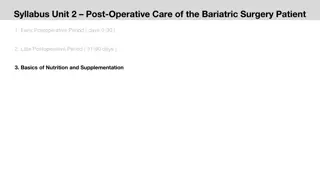Comprehensive Guide to Bariatric Patient Nutrition
This comprehensive guide outlines the dietary requirements and progression for bariatric patients, from pre-operative liver reducing diets to post-operative meal plans. Key dietary elements, including regular balanced meals and portion control, are highlighted. The guide also covers the importance of fluid intake, protein-rich foods, and transitioning back to a normal diet post-surgery. Essential rules and tips for successful weight management are provided, emphasizing the importance of consistency and mindful eating habits.
Download Presentation

Please find below an Image/Link to download the presentation.
The content on the website is provided AS IS for your information and personal use only. It may not be sold, licensed, or shared on other websites without obtaining consent from the author. Download presentation by click this link. If you encounter any issues during the download, it is possible that the publisher has removed the file from their server.
E N D
Presentation Transcript
Dietetic Input For The Bariatric Patient Journey www.cddft.nhs.net
Dietetic Input Within The Bariatric Service www.cddft.nhs.net
Key Dietary Elements Regular, balanced meals Limiting high fat and high sugar foods e.g. chocolate, sweets, puddings Not excessive portion sizes Alcohol within recommended limits Cooking from scratch Consistent changes www.cddft.nhs.net
Pre-Operative Liver Reducing Diet www.cddft.nhs.net
Pre-Operative Liver Reducing Diet Very low energy (approx 800 kcals) Limited carbohydrate, including certain vegetables and fruit Increased protein No high fat or high sugar foods No alcohol www.cddft.nhs.net
Post-Operative Diet Fluids only (1-2 days) Water, cooled tea, coffee, milk, fruit juices, clear soup Pureed Diet (4 weeks) Smooth yoghurt, blended porridge, pureed fruit and veg, pureed meat Soft diet (2 weeks) Mashed potato, baked beans, scrambled eggs, minced meat www.cddft.nhs.net
Post-Operative Diet Protein Foods Meat, fish, eggs, pulses, dairy foods Fruit and Veg Pureed/ mashed as appropriate If you have room: Carbohydrate Cereal, potato, rice, pasta www.cddft.nhs.net
Normal Diet (week 6+) Regular small meals, 4-6 small meals Expected ~1200 kcals, 60g protein Based on low fat/sugar foods and drinks and including high fibre foods Including adequate sources of iron and calcium www.cddft.nhs.net
Basic Rules After Surgery www.cddft.nhs.net
Important Points - Fluids 1 - 2 litres fluids per day Leave a 30 minute gap before and after eating before you drink Avoid fizzy drinks www.cddft.nhs.net
Important Points Vitamins & Minerals High risk of long term nutritional deficiency e.g. osteoporosis, anaemia A-Z multivitamin and minerals (2/day) Iron (1-2/day) Calcium and vitamin D (2/day) Vitamin B12 injections (every 3 months) www.cddft.nhs.net
Post Operative Dietetic Management Weight loss Frequency and component of meals Portion sizes Vitamin and mineral intake Activity levels Nausea/ vomiting/ pain www.cddft.nhs.net
Ongoing Dietetic Support Outpatient consultant clinics 3 monthly for the first year Appointments then 6 monthly for the second year Dietetic Team Contact Details: 01388 455200 www.cddft.nhs.net





















